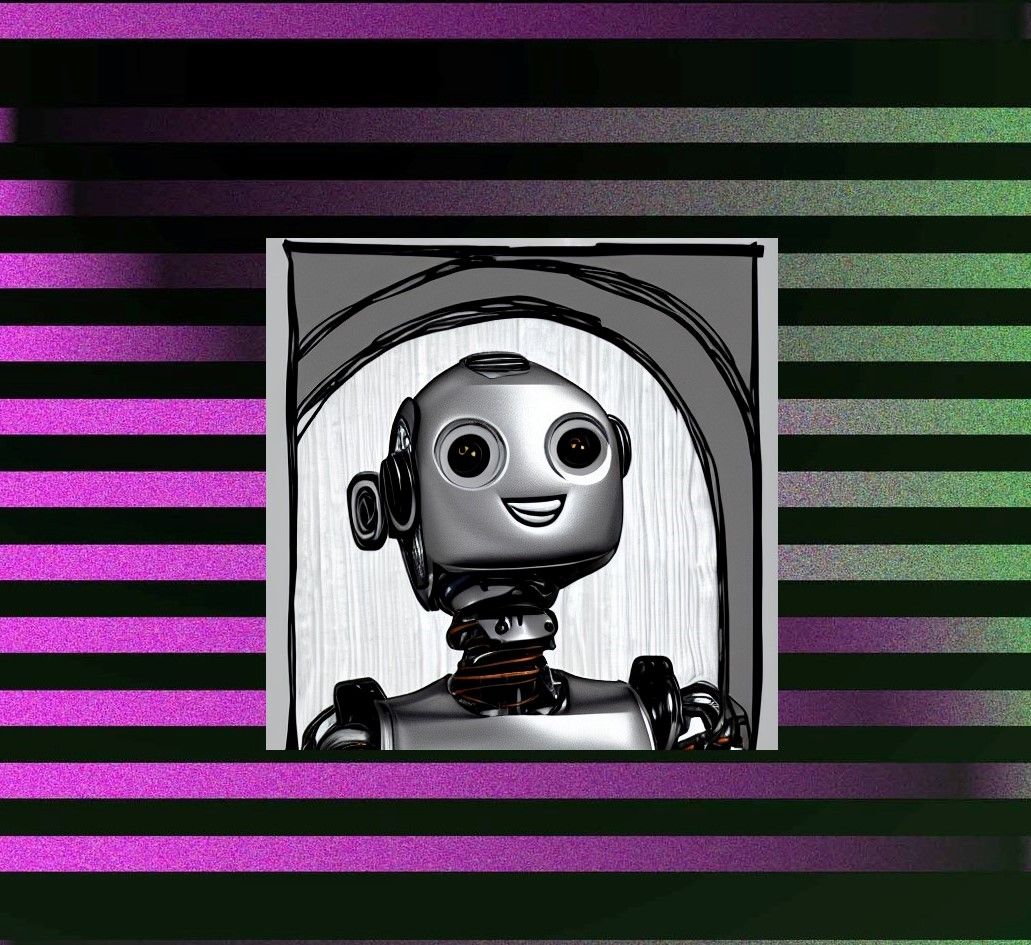Reflections on ChatGPT: The AI Chatbot We Didn't Know We Needed
With ChatGPT in full bloom and GPT-4 here in time for Spring, let's take a moment to reflect on this runaway technology (while we can still remember what life was like before it).

ChatGPT is an AI chatbot released in November 2022 by OpenAI, an AI research and deployment company. It is based on OpenAI’s GPT-3.5 technology (GPT stands for Generative Pre-Trained Transformer). OpenAI has since improved upon GPT-3.5 to produce its latest and most sophisticated iteration to date, GPT-4. OpenAI receives funding from mega investors such as Microsoft and Bedrock Capital.
An introduction to ChatGPT
Before ChatGPT, did you ever think about how great it would be if your search engine could respond to your queries in a humanlike way, perhaps in paragraph form at record speed? Me neither. Yet here we are, typing our carefully-worded questions into a tool that continues to amaze us with its surprisingly helpful responses.
Using ChatGPT is as simple as typing a question into a Google search bar. Users simply create an account with https://chat.openai.com where they are directed to a screen to begin typing questions. ChatGPT will produce a response in a matter of seconds, depending on the complexity of the question it's fed. When fed a 'loaded' question, it will produce a loaded answer. When fed a simple question, it...might also produce a loaded answer. One never knows but people have noticed it has a tendency toward longer answers.
And that's pretty much it. No training period needed. Actually, most of us have already been through the training in the form of using the Google Search console for years. The folks at OpenAI seem to be highly aware of this and therefore made their tool as easy as possible to use. This could help explain ChatGPT's extreme popularity in a short period of time, making it the fastest-growing web platform ever with 100 million users in just over two months.
Wikipedia as a source?
If you thought ChatGPT got its information from only the scholarly-ist of scholarly articles, think again. In short, ChatGPT gets its information from…The Internet. More specifically, Common Crawl (an open-source dataset that has collected data from the web since 2008), WebText2 (the text of web pages from outbound Reddit links with three upvotes or more), Internet-based books, and yes…Wikipedia. Do with that information what you will.
More importantly, ChatGPT and other AI chatbot models use Reinforcement Learning from Human Feedback (RLHF) to improve their accuracy and provide a more humanlike conversation experience with their users. In other words, they receive their information from us. We are the key to making these generative AI models what they are and making them conversationally dynamic and engaging.
Caveats
Knowing that it is designed by humans (who are fallible) and that it is a relatively new technology in its early stages, one should keep the following in mind when using an AI chatbot like ChatGPT:
- Its responses may be inaccurate. For example, when one user asked what the fastest marine mammal was, the AI incorrectly answered: "peregrine falcon" (which is not a marine mammal). When probed further, the bot politely retracted its statement and stated that "sailfish" was indeed the fastest marine mammal. If only humans would be this polite when they're wrong.

- Its responses may be outdated. OpenAI admits the information used in the chatbot's training model does not have access to information beyond 2021. Of course, this is subject to change and later models will certainly have access to more up-to-date information as OpenAI attempts to stay ahead of the competition.
- Its answers are dependent on input phrasing. In other words, if you phrase the same question differently, you might get a slightly different answer. AI still relies heavily on human input to function with accuracy.
- It is unknown how long the service will remain free. As of April 2023, ChatGPT is still in the ‘research preview’ phase and is free to use; however, OpenAI recently released a subscription-based model called ChatGPT Plus for $20/month. Users with a subscription will also have access to ChatGPT-4, which is supposed to provide more accurate answers, handle more nuanced instructions than GPT-3.5 and can even accept image prompts.
Social Concerns
There are moral and ethical concerns associated with the AI chatbot, such as the fact that it could help students cheat on homework, increase instances of plagiarism and other ethical implications. Other concerns are that there is no source of truth and that its answers may change depending on how the question is phrased.
OpenAI admits that even ChatGPT-4 has its limitations, as it still makes reasoning errors and "hallucinates" facts. The model can also display certain biases and still does not have access to datasets beyond September 2021.
The list of concerns will continue to ebb and flow as the AI receives more user feedback to improve its functionality, but these are legitimate concerns with no easy answers at the moment.
This begs the question...
Will ChatGPT take over some tech jobs such as web development and programming?
It’s too soon to determine the full extent of ChatGPT’s impact on the workplace, but many are finding it useful in answering work-related questions, generating business reports, and yes, even writing snippets of code.
Many programmers, however, are quick to point out that it's not an entirely reliable source for complex programming problems and should be treated as more of a guide than as a last word in coding. There are others who swear by it and will use ChatGPT in place of Stack Overflow (a public platform where people share coding and other technical knowledge) as a source for answering their coding questions.
Will we be able to tell if certain online content is ChatGPT generated?
OpenAI is working on its AI Text Classifier, a tool used to detect AI-generated text. Though, with a 26% accuracy rate, this too is a work in progress that should be taken with a grain of salt. (OpenAI claims the tool is more accurate with text that is 1,000 characters or more).
Why do we need ChatGPT?

When I asked ChatGPT this question, it responded with the following:
- Information retrieval: ChatGPT can be used to quickly retrieve information on a wide range of topics, such as history, science, geography, and more.
- Assistance with tasks: ChatGPT can assist with tasks such as writing, translation, and summarization, making it a useful tool for individuals and businesses alike.
- Customer service: ChatGPT can be integrated into customer service systems to provide quick and accurate responses to customer inquiries, helping to improve the overall customer experience.
- Creativity enhancement: ChatGPT can also be used as a tool to generate creative writing, poetry, song lyrics, and more, helping users to unlock their creativity and come up with new ideas.
You may have noticed that the chatbot did not actually answer the question, which was: Why do we need ChatGPT? The answers the chatbot provides to this question are more concerned with what ChatGPT can do, all of which are things that people have been doing themselves for years.
This begs a similar but slightly different question, one that we were not really given a chance to ask before this technology exploded onto the scene:
Do we really need ChatGPT?
This is a question that we might answer differently today than we will five years from now. Even though we didn't ask for it, we cannot deny that ChatGPT has made our lives a bit easier, been delightfully entertaining to use and helped us solve unique problems. People have quickly acclimated to the AI, marveling at the lightning speed with which it calculates complex mathematical equations or producing jokes that can actually make people chuckle. It won't be long before we start wondering what we did before advanced AI chatbots came along, much like the way people wonder what we did before the Internet.
The tidal waves of late-stage artificial intelligence technology are crashing in.
But even though ChatGPT is surprisingly accurate in its answers to complex questions, wouldn't it be wise for us to approach this technology with the same caution as we would gas station sushi? Are we letting it run away with our imaginations, creativity and problem-solving skills purely for the sake of convenience?
With Google and Bing now also producing their own advanced AI chatbots to rival ChatGPT, the time for hesitation is closing. The tidal waves of late-stage artificial intelligence technology are crashing in, and those refraining from their use may one day find themselves lost at sea, especially if everyone else is using them.
Conclusion
ChatGPT is a useful tool that we can use to our advantage on both a personal and professional level. With that being said, it’s still in the review stages and should be taken with a grain of salt. The fact that OpenAI released ChatGPT-4 merely a few months after ChatGPT-3 is indication that the AI chatbot will continue improving at a rapid pace. However, perhaps it isn't a bad idea to proceed with some level of skepticism and think about why we need it and what it means to us, at least while we still have the chance.
Sources and Further Reading
Cao, Y., Li, S., Liu, Y., Yan, Z., Dai, Y., Yu, P. S., & Sun, L. (2023). A Comprehensive Survey of AI-Generated Content (AIGC): A History of Generative AI from GAN to ChatGPT. https://arxiv.org/abs/2303.04226
Layton, D. (2023, January 31). ChatGPT — Show me the Data Sources - Dennis Layton. Medium. https://medium.com/@dlaytonj2/chatgpt-show-me-the-data-sources-11e9433d57e8
What is generative AI? (n.d.). McKinsey & Company. https://www.mckinsey.com/featured-insights/mckinsey-explainers/what-is-generative-ai
